
Rotorua: The Geothermal Wonderland of New Zealand
Rotorua, located in the heart of New Zealand's North Island, is a place like no other. Known for its geothermal activity and Maori culture, Rotorua offers a unique blend of natural wonders and cultural experiences. The scent of sulfur fills the air, a reminder of the powerful geothermal forces at work beneath the earth's surface. Visitors can explore a variety of geothermal parks, each showcasing bubbling mud pools, steaming vents, and geysers that erupt with stunning regularity. The city is also a gateway to Maori culture. Whakarewarewa, a living Maori village, provides an immersive experience where you can learn about the traditions and daily life of the Maori people. Cultural performances, including the famous Haka dance, offer a glimpse into the rich heritage of New Zealand's indigenous community. Rotorua is also home to Te Puia, where you can witness the awe-inspiring Pohutu Geyser and visit the New Zealand Maori Arts and Crafts Institute. Adventure seekers will find plenty to do in Rotorua. The surrounding lakes and forests offer opportunities for mountain biking, hiking, and water sports. The Redwoods Forest is a must-visit for its extensive network of walking and biking trails, while Lake Rotorua is perfect for kayaking and fishing. For those looking to relax, the city's natural hot springs provide a perfect way to unwind after a day of exploration. Many spas in the area offer geothermal mineral pools, mud baths, and a variety of wellness treatments. Rotorua's culinary scene is equally exciting, featuring a variety of local and international cuisines. Don't miss the chance to try a traditional Maori 'hangi' meal, cooked in an earth oven. The city's vibrant markets and boutique shops offer unique souvenirs, including locally made crafts and Maori art. With its fascinating blend of natural beauty, cultural richness, and adventurous activities, Rotorua is a destination that promises an unforgettable experience.
Local tips in Rotorua
- Visit early in the morning to see geysers in full action with fewer crowds.
- Bring a reusable water bottle; many places have free refill stations.
- Wear comfortable walking shoes; geothermal parks and trails can be uneven.
- Check local weather forecasts; Rotorua's climate can change quickly.
- Respect Maori customs and traditions when visiting cultural sites.
Rotorua: The Geothermal Wonderland of New Zealand
Rotorua, located in the heart of New Zealand's North Island, is a place like no other. Known for its geothermal activity and Maori culture, Rotorua offers a unique blend of natural wonders and cultural experiences. The scent of sulfur fills the air, a reminder of the powerful geothermal forces at work beneath the earth's surface. Visitors can explore a variety of geothermal parks, each showcasing bubbling mud pools, steaming vents, and geysers that erupt with stunning regularity. The city is also a gateway to Maori culture. Whakarewarewa, a living Maori village, provides an immersive experience where you can learn about the traditions and daily life of the Maori people. Cultural performances, including the famous Haka dance, offer a glimpse into the rich heritage of New Zealand's indigenous community. Rotorua is also home to Te Puia, where you can witness the awe-inspiring Pohutu Geyser and visit the New Zealand Maori Arts and Crafts Institute. Adventure seekers will find plenty to do in Rotorua. The surrounding lakes and forests offer opportunities for mountain biking, hiking, and water sports. The Redwoods Forest is a must-visit for its extensive network of walking and biking trails, while Lake Rotorua is perfect for kayaking and fishing. For those looking to relax, the city's natural hot springs provide a perfect way to unwind after a day of exploration. Many spas in the area offer geothermal mineral pools, mud baths, and a variety of wellness treatments. Rotorua's culinary scene is equally exciting, featuring a variety of local and international cuisines. Don't miss the chance to try a traditional Maori 'hangi' meal, cooked in an earth oven. The city's vibrant markets and boutique shops offer unique souvenirs, including locally made crafts and Maori art. With its fascinating blend of natural beauty, cultural richness, and adventurous activities, Rotorua is a destination that promises an unforgettable experience.
When is the best time to go to Rotorua?
Iconic landmarks you can’t miss
Redwoods Treewalk
Discover the breathtaking beauty of Rotorua's Redwoods Treewalk, an elevated adventure above the forest floor amidst towering trees and stunning landscapes.
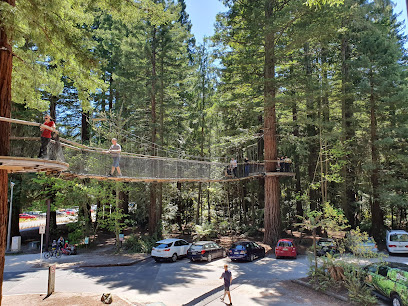
Waiotapu Thermal Wonderland
Explore the vibrant geothermal wonders of Waiotapu Thermal Wonderland, a must-see natural attraction in Rotorua, New Zealand.
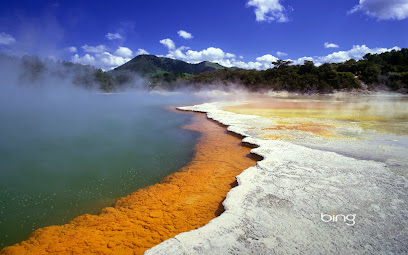
Te Puia - Rotorua, NZ
Discover the geothermal wonders and rich Māori culture at Te Puia, Rotorua's premier tourist attraction.
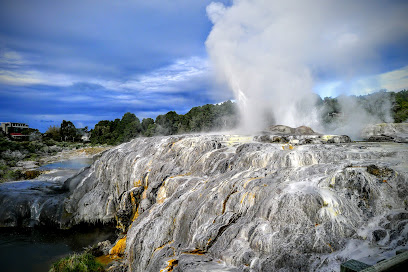
Polynesian Spa
Experience the ultimate relaxation at Polynesian Spa – Rotorua's premier thermal spa with breathtaking lakeside views and rejuvenating treatments.
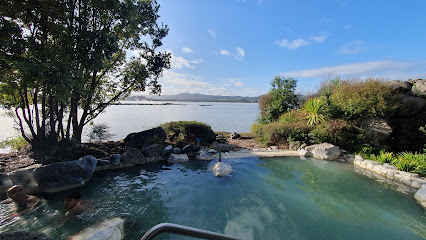
Rotorua Central
Experience the vibrant shopping and dining hub of Rotorua Central, where local culture meets a diverse range of retail and culinary delights.
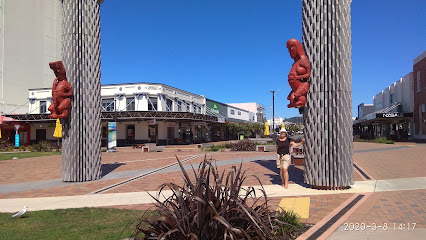
Kuirau Park
Explore Kuirau Park's geothermal wonders, lush landscapes, and family-friendly activities in the heart of Rotorua, New Zealand.
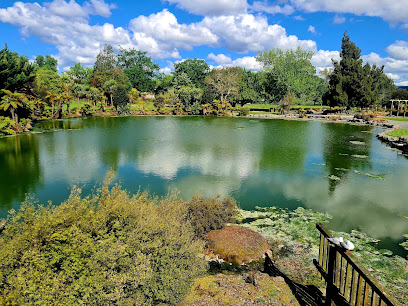
Whakarewarewa - The Living Maori Village
Explore the rich culture and geothermal wonders of Whakarewarewa - The Living Maori Village, a unique cultural experience in Rotorua, New Zealand.
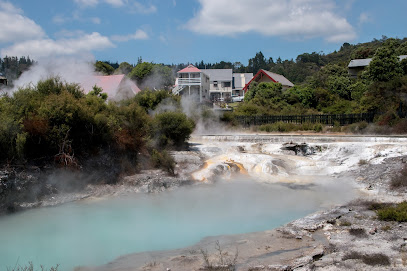
Kuirau Park - Mud Pools
Explore Kuirau Park in Rotorua, a geothermal gem featuring bubbling mud pools, steaming vents, and beautiful pathways for an unforgettable nature experience.
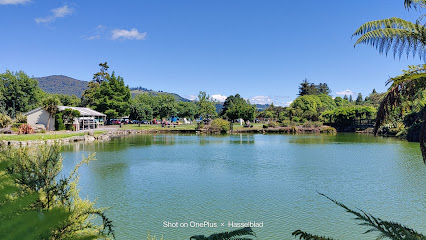
Rotorua isite Visitor Information Centre
Explore Rotorua's geothermal wonders and rich Maori culture at the i-SITE Visitor Information Centre, your essential resource for unforgettable adventures.
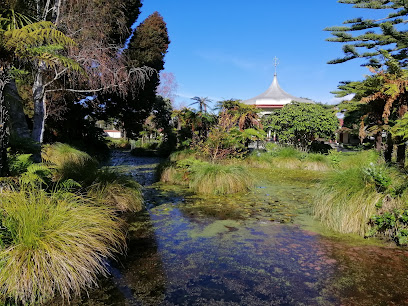
Waimangu Volcanic Valley
Explore Waimangu Volcanic Valley in Rotorua, New Zealand – a geothermal paradise with stunning landscapes and rich cultural history.
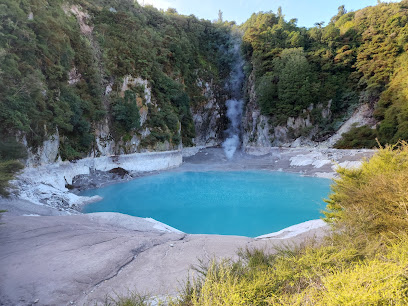
Government Gardens
Explore the picturesque Government Gardens in Rotorua, where stunning landscapes meet rich history and geothermal wonders.
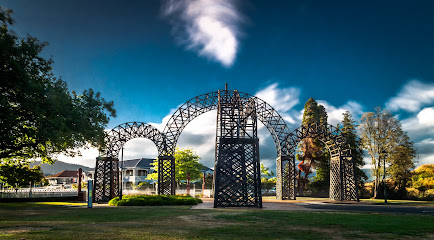
ZORB™ Rotorua
Discover the thrill of ZORB™ Rotorua, where adventure meets stunning landscapes in an unforgettable rolling experience.
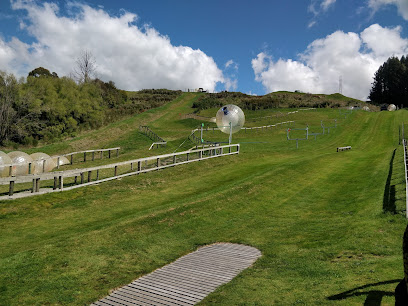
Mitai Maori Village
Immerse yourself in the rich Maori culture at Mitai Maori Village - a unique blend of tradition, performance, and authentic cuisine in Rotorua.
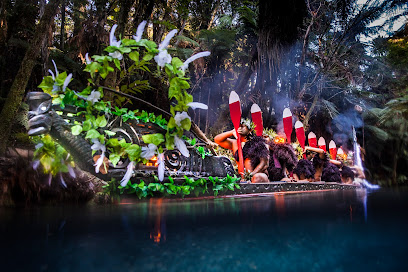
Agrodome
Explore the heart of New Zealand's farming culture at Agrodome, a vibrant attraction filled with interactive experiences and stunning scenery.
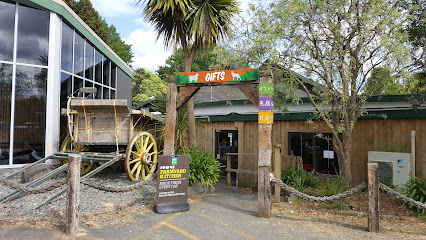
3D Trick Art Gallery
Explore the world of imagination at the 3D Trick Art Gallery in Rotorua, where every corner brings art to life and captures unforgettable memories.
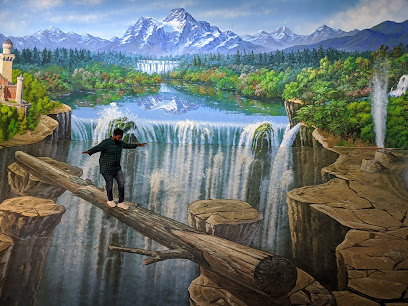
Unmissable attractions to see
Redwoods Treewalk
Explore the Redwoods Treewalk in Rotorua, a breathtaking elevated experience among towering trees that blends adventure with natural beauty.
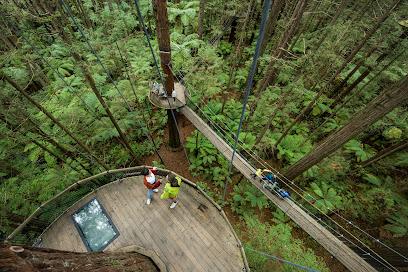
Te Puia - Rotorua, NZ
Experience the vibrant Māori culture and stunning geothermal wonders of Te Puia in Rotorua, New Zealand. A destination rich in tradition and natural beauty.
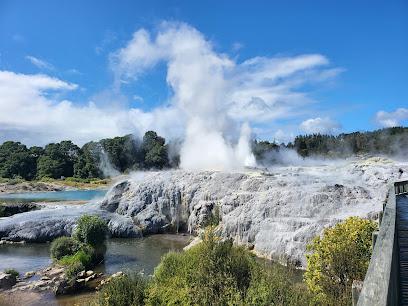
Waiotapu Thermal Wonderland
Explore Waiotapu Thermal Wonderland, a breathtaking geothermal park in Rotorua, showcasing vibrant pools, geysers, and stunning landscapes.
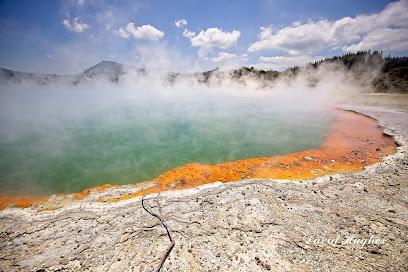
Polynesian Spa
Experience relaxation and rejuvenation at Polynesian Spa in Rotorua, where natural geothermal waters meet stunning lakeside views for the ultimate spa experience.
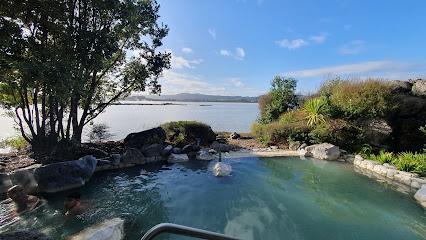
Redwoods – Whakarewarewa Forest
Discover the enchanting Whakarewarewa Forest, a national treasure in Rotorua, home to majestic redwoods and unforgettable outdoor adventures.
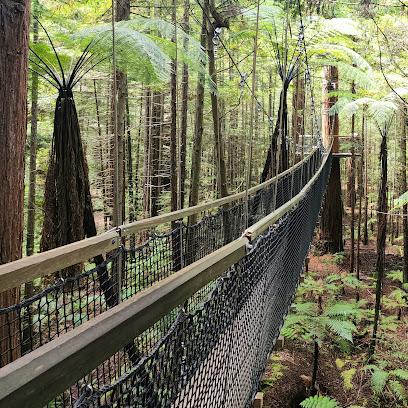
Kuirau Park
Explore Kuirau Park, Rotorua's geothermal gem, featuring bubbling mud pools, scenic walking paths, and serene picnic spots in a lush, natural setting.
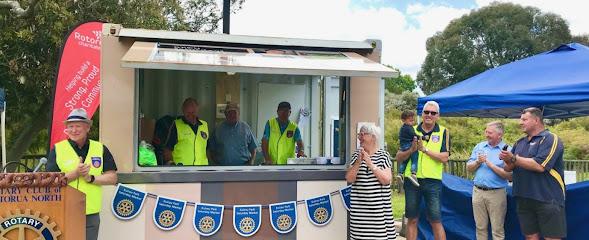
Whakarewarewa - The Living Maori Village
Discover the vibrant Maori culture at Whakarewarewa - The Living Maori Village, where tradition meets geothermal wonders in Rotorua.
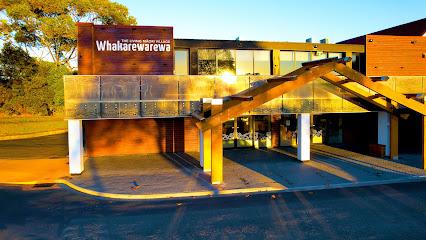
Hell's Gate Geothermal Reserve and Mud Spa
Experience the geothermal wonders and therapeutic mud spa at Hell's Gate in Rotorua, a unique blend of nature and relaxation.
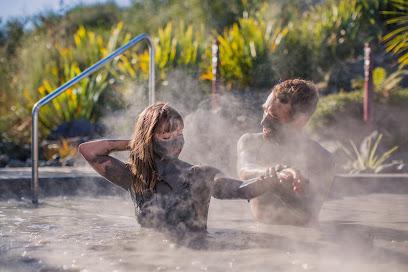
Rotorua Canopy Tours
Discover the breathtaking beauty of Rotorua Canopy Tours, where adventure meets nature in New Zealand's stunning landscapes.
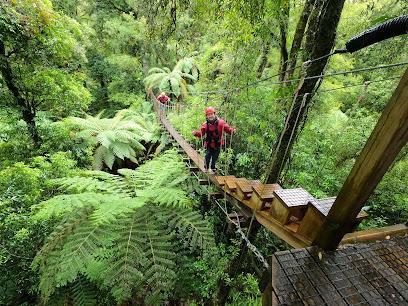
Kuirau Park - Mud Pools
Discover the enchanting geothermal wonders of Kuirau Park in Rotorua, featuring bubbling mud pools and stunning natural landscapes.
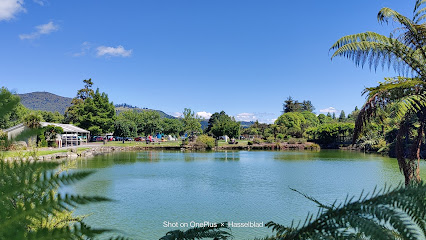
Rotorua isite Visitor Information Centre
Explore Rotorua's geothermal wonders and rich Maori culture at the i-SITE Visitor Information Centre, your essential travel companion in New Zealand.
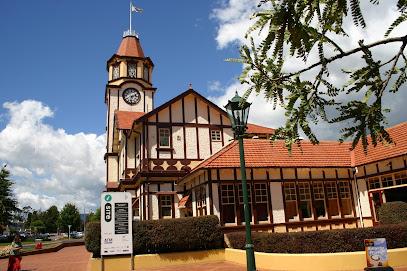
Skyline Rotorua
Experience breathtaking views, exciting activities, and delightful dining at Skyline Rotorua, your gateway to adventure in New Zealand.

Government Gardens
Explore the breathtaking beauty and rich history of Government Gardens in Rotorua, a must-see park filled with geothermal wonders and stunning landscapes.
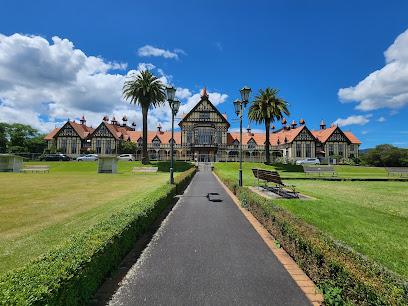
Waimangu Volcanic Valley
Explore the breathtaking beauty of Waimangu Volcanic Valley, a geothermal marvel in Rotorua, New Zealand, featuring stunning landscapes and unique natural attractions.
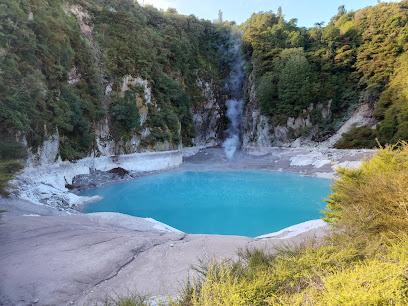
Paradise Valley Springs
Explore stunning landscapes and encounter unique wildlife at Paradise Valley Springs, a premier tourist attraction in Rotorua.
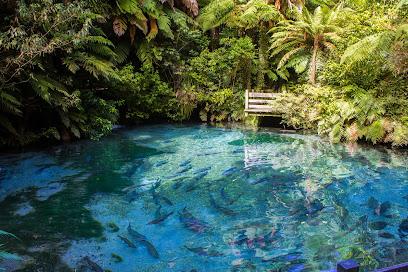
Essential places to dine
Eat Streat
Discover Rotorua's culinary gem at Eat Streat - where diverse flavors meet vibrant atmosphere in New Zealand's premier food court.
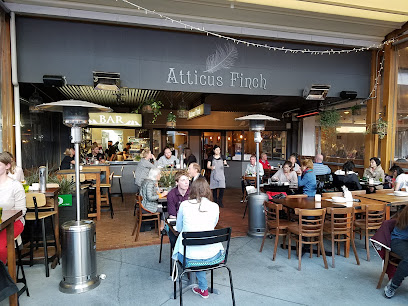
Pig & Whistle, Historic Pub
Discover Pig & Whistle: Rotorua's historic gastropub offering delicious food, live music, and vibrant nightlife in the heart of New Zealand.
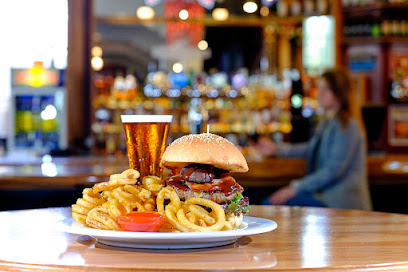
Fat Dog Cafe & Bar
Discover the delightful flavors of Rotorua at Fat Dog Cafe & Bar - where every meal is an experience.
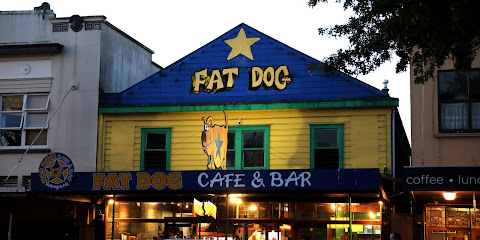
Capers Cafe + Store
Discover the flavors of Rotorua at Capers Cafe + Store—your go-to destination for delicious breakfasts and delightful pastries.
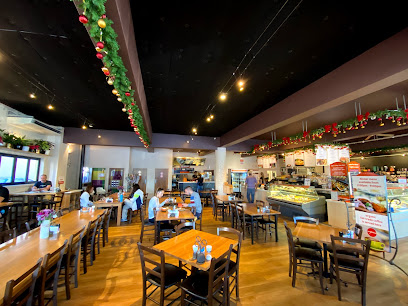
Cobb & Co. Rotorua
Experience family-friendly dining at Cobb & Co. Rotorua with delectable steaks and a welcoming atmosphere perfect for all ages.
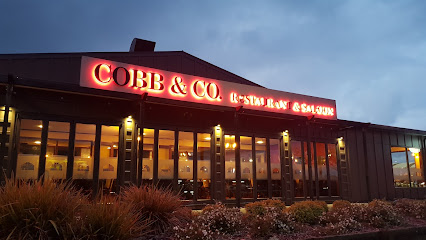
El Mexicano Zapata Cantina
Savor authentic Mexican cuisine at El Mexicano Zapata Cantina in Rotorua—where vibrant flavors meet warm hospitality.
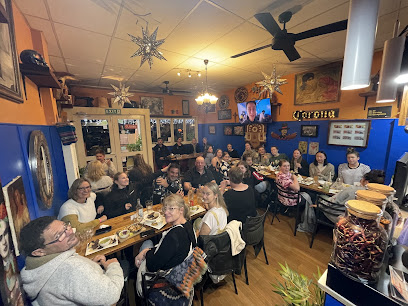
Atticus Finch
Discover Atticus Finch in Rotorua – where exquisite flavors meet exceptional service in a cozy atmosphere perfect for any occasion.
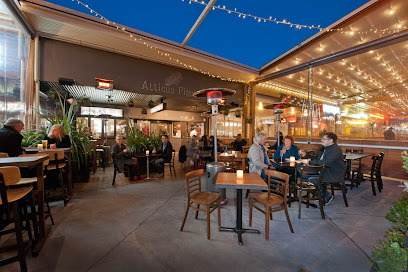
Leonardo's Italian Food & Wine
Experience authentic Italian cuisine in Rotorua at Leonardo's Food & Wine – where every dish tells a story.
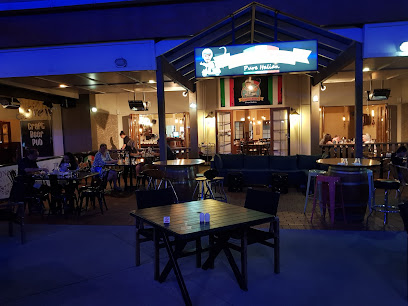
Urbano Bistro Cafe & Restaurant
Experience the taste of Rotorua at Urbano Bistro Cafe & Restaurant - your go-to spot for brunch and quality coffee in a cozy setting.
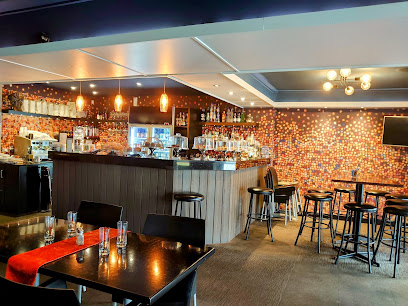
Lone Star Rotorua
Experience the essence of New Zealand dining at Lone Star Rotorua—where delicious meals meet vibrant hospitality.
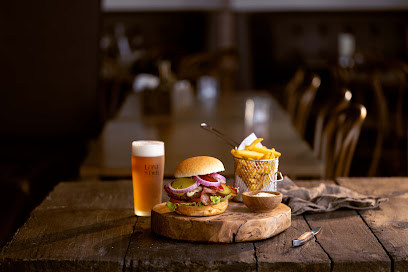
Abracadabra Bar Rotorua
Discover Abracadabra Bar in Rotorua: where exquisite cuisine meets enchanting cocktails in a vibrant atmosphere perfect for any occasion.
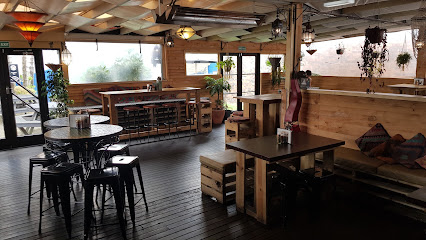
Indian Star Restaurant
Discover authentic Indian cuisine at Indian Star Restaurant in Rotorua – where every dish tells a story and hospitality reigns supreme.
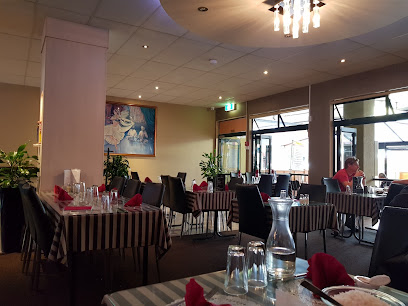
Chimney Indian Restaurant
Experience authentic Indian cuisine at Chimney Indian Restaurant in Rotorua - where rich flavors meet warm hospitality.
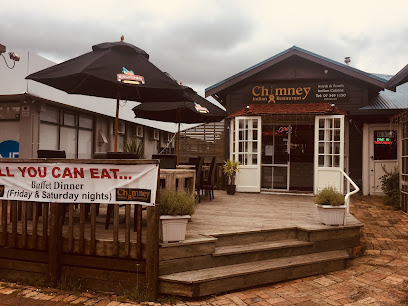
Stratosfare Restaurant & Bar
Experience exquisite dining with breathtaking views at Stratosfare Restaurant & Bar in Rotorua - where culinary delights meet stunning landscapes.
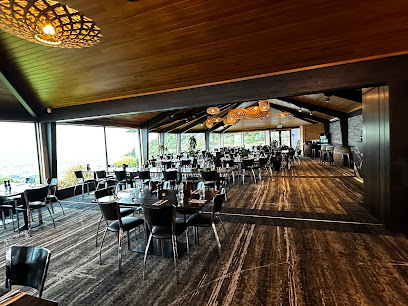
CBK (Craft Bar And Kitchen)
Experience the flavors of Rotorua at CBK (Craft Bar And Kitchen), where great food meets local craft beers in a welcoming atmosphere.
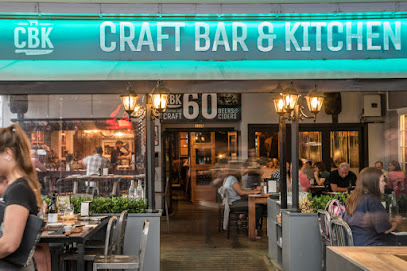
Markets, malls and hidden boutiques
Rotorua Central
Discover a vibrant shopping experience at Rotorua Central, featuring diverse stores, delightful eateries, and a lively atmosphere in the heart of Rotorua.
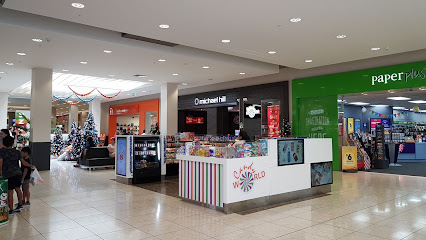
Spotlight Rotorua
Discover a world of creativity at Spotlight Rotorua, your go-to craft store for fabrics, art supplies, and home goods in the scenic Bay of Plenty region.
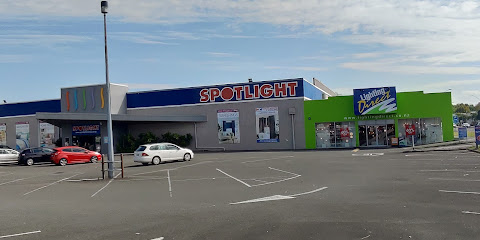
Farmers Rotorua
Explore Farmers Rotorua for a delightful shopping experience with a wide selection of clothing, furniture, and unique local products in the heart of Rotorua.
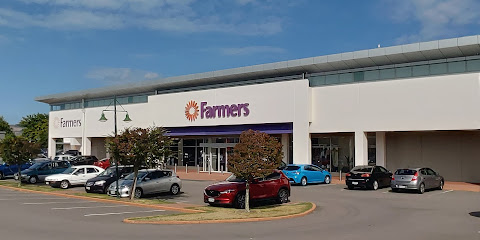
The Warehouse Rotorua
Shop at The Warehouse Rotorua for an extensive selection of clothing, home goods, and seasonal items at unbeatable prices, perfect for tourists.
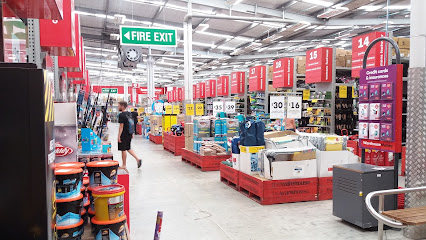
Postie Rotorua
Discover the latest fashion trends for all ages at Postie Rotorua, your one-stop clothing shop in Rotorua Central Mall.
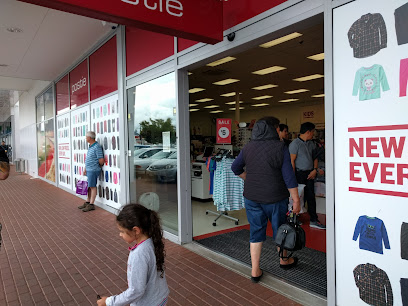
McLeods Booksellers
Explore McLeods Booksellers in Rotorua, a charming bookstore offering a vast collection of literature and a cozy atmosphere for all book lovers.
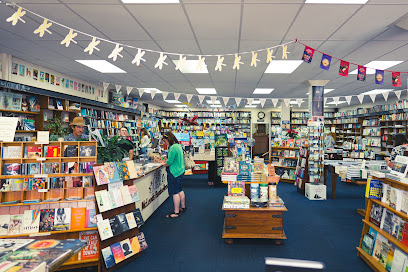
Mountain Jade (Store, Carving Studio, Tours)
Experience the beauty of jade and the art of stone carving at Mountain Jade, a unique gift shop and cultural hub in Rotorua, New Zealand.

Rotorua Antiques & Collectables
Explore Rotorua Antiques & Collectables for unique vintage treasures and collectibles that capture the essence of New Zealand's rich history.
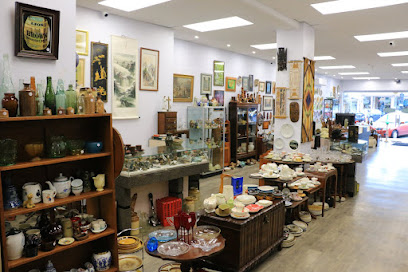
Rock & Gemstone Shop Rotorua
Explore the enchanting Rock & Gemstone Shop in Rotorua, where nature's beauty and craftsmanship unite for an unforgettable shopping experience.
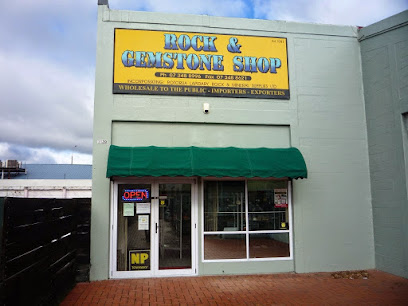
Kanuka Boutique Florist
Explore the beauty of Rotorua with exquisite floral designs and unique gifts at Kanuka Boutique Florist, your destination for dried flowers and more.
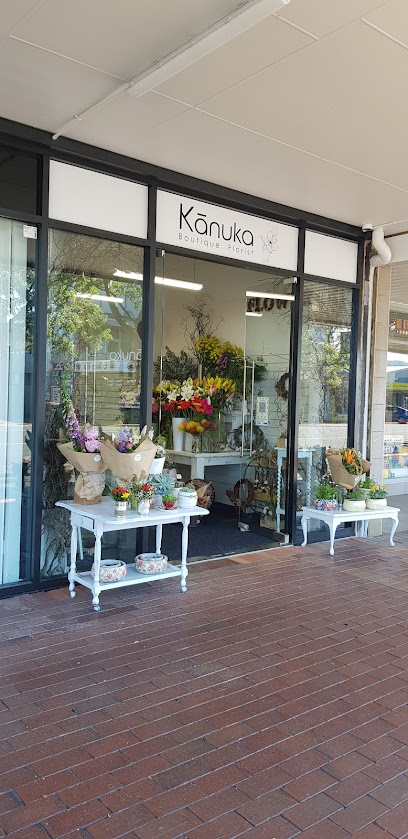
Cotton On
Explore Cotton On in Rotorua for trendy clothing, unique gifts, and stylish accessories that embody the spirit of New Zealand fashion.
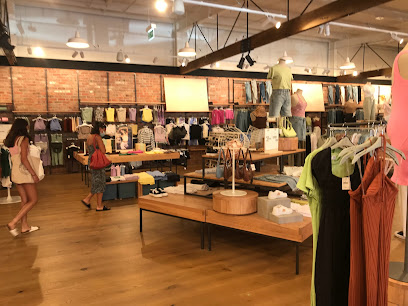
iNZpired - the store
Discover authentic New Zealand artistry at iNZpired, your unique shopping destination in Rotorua for local crafts and souvenirs.
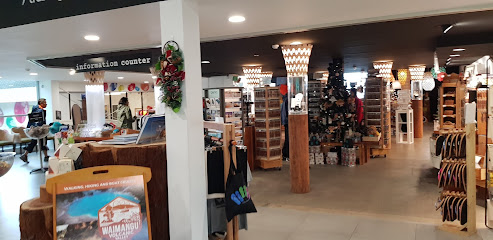
Grace and Glory
Explore the charm of Grace and Glory, a unique gift shop offering handcrafted treasures, fashion accessories, and home goods that embody local artistry.
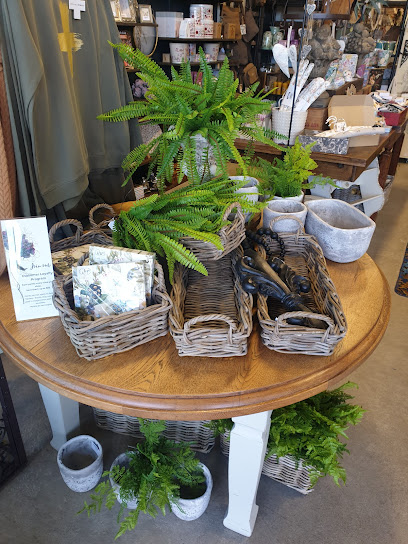
Jelly Belly Concept Store
Experience the colorful world of jellybeans at the Jelly Belly Concept Store in Rotorua, where sweetness and creativity come together for an unforgettable visit.
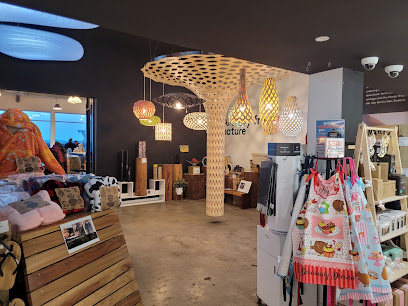
Atlantis Books
Explore a treasure trove of literature at Atlantis Books, Rotorua’s beloved bookshop with a cozy ambiance and a diverse selection.
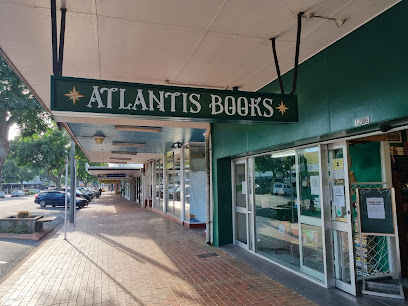
Essential bars & hidden hideouts
Pig & Whistle, Historic Pub
Discover Pig & Whistle, a historic pub in Rotorua blending delicious gastropub cuisine with live music and a vibrant sports atmosphere.
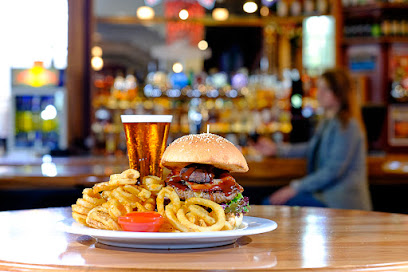
CBK (Craft Bar And Kitchen)
Discover the ultimate dining experience at CBK in Rotorua, where craft beer meets gourmet grill in a vibrant atmosphere.
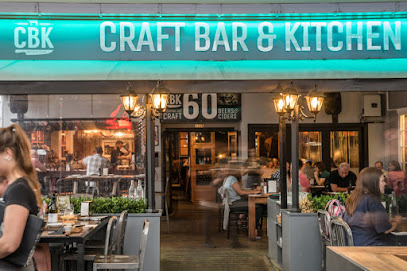
BREW | Craft Beer Pub
Experience Rotorua's vibrant craft beer culture at BREW, a welcoming brewpub serving delicious food and a wide selection of local brews.
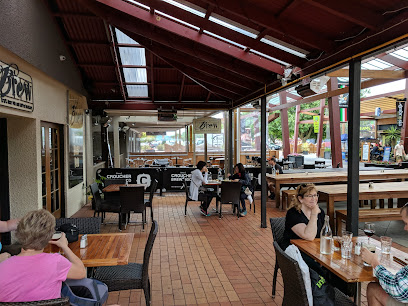
Hennessy's Irish Bar
Discover the authentic Irish experience at Hennessy's Irish Bar, where lively atmosphere meets delicious food and drinks in Rotorua.
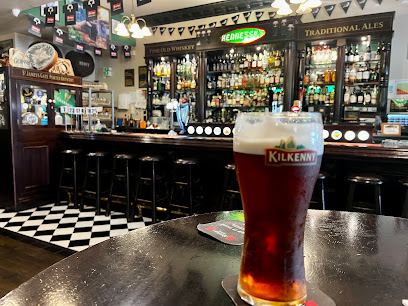
Good Eastern Taphouse
Discover the vibrant flavors of Rotorua at Good Eastern Taphouse, where great food, local brews, and a welcoming atmosphere await you.
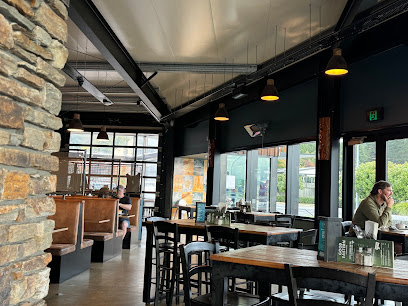
The Fainting Goat
Discover a culinary treasure in Rotorua at The Fainting Goat, where innovative dishes and crafted cocktails await in a warm, inviting setting.
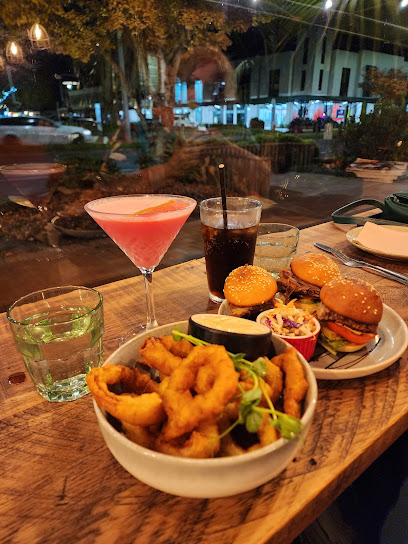
Rotorua Social
Discover Rotorua Social, a vibrant bar and restaurant blending local flavors with a lively atmosphere, perfect for unwinding and socializing.
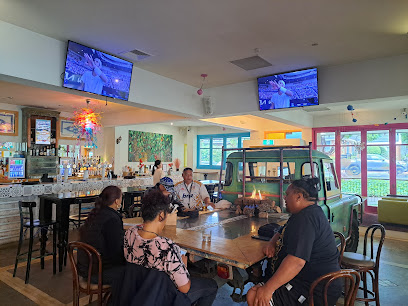
The RnM Sports Bar & Grill
Discover the ultimate sports bar experience at The RnM Sports Bar & Grill, where delicious food meets thrilling live sports in Rotorua.
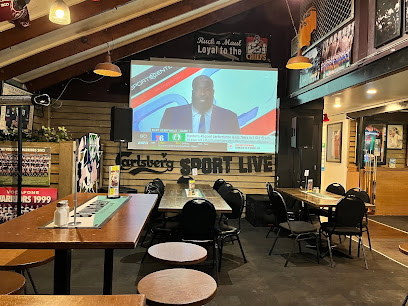
SOBAR & CAFE
Experience the vibrant fusion of flavors at SOBAR & CAFE, Rotorua's hotspot for casual dining and lively nightlife.
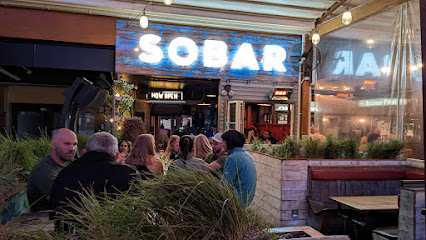
Crates N Cues Bar
Discover the lively atmosphere and delicious offerings at Crates N Cues Bar, a must-visit pub in the heart of Rotorua, New Zealand.
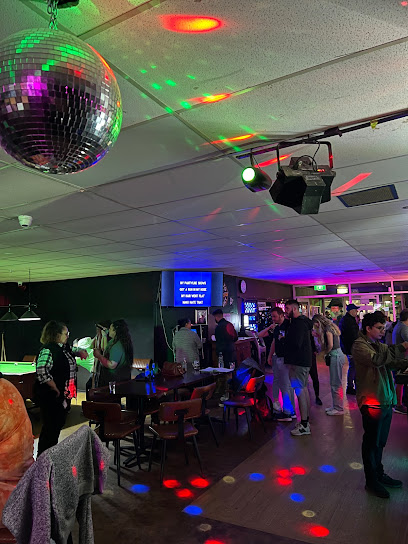
Level 13 Theme Rooms and Bar
Discover the eclectic charm of Level 13 Theme Rooms and Bar in Rotorua, where themed decor meets vibrant nightlife for an unforgettable experience.
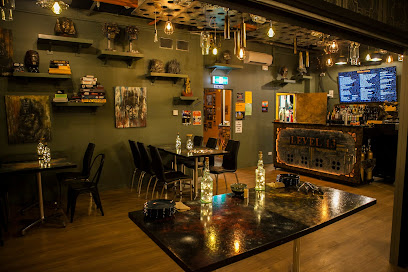
Our Backyard Pub
Discover the essence of Rotorua at Our Backyard Pub, where local flavors and a vibrant atmosphere combine for an unforgettable experience.
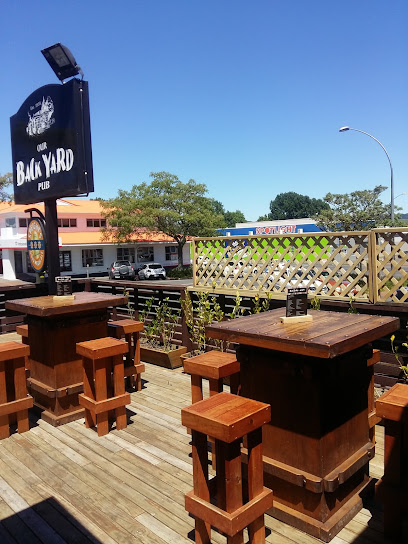
Vault Bar
Experience the vibrant nightlife at Vault Bar in Rotorua—your local hub for crafted cocktails, live music, and a friendly atmosphere.
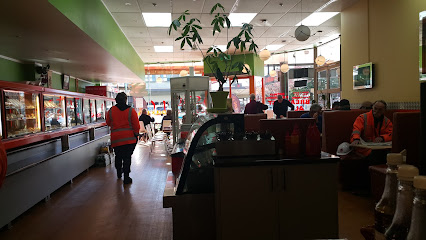
COCKTAIL LIBRARY & Dessert Bar
Experience Rotorua's vibrant nightlife at the Cocktail Library & Dessert Bar, where exquisite cocktails meet decadent desserts in a stylish setting.
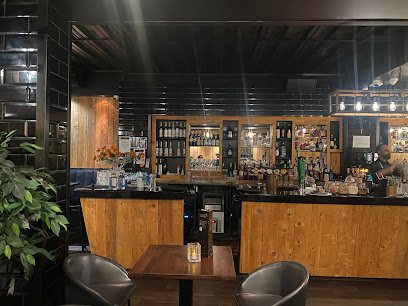
Local Phrases
-
- HelloKia ora
[Kee-ah or-ah] - GoodbyeHaere rā
[High-reh rah] - YesĀe
[Eye] - NoKāo
[Kah-oh] - Please/You're welcomeWhakawhetai
[Fah-kah-feh-tie] - Thank youNgā mihi
[Nah mee-hee] - Excuse me/SorryWhakama
[Fah-kah-mah] - How are you?Kei te pēhea koe?
[Kay teh pay-hair car-eh] - Fine. And you?Ka pai. Ā koe?
[Kah pie. Eye koh-eh] - Do you speak English?Kōrero koe i te reo Pākehā?
[Koh-reh-roh koh-eh ee teh reh-oh Pah-keh-hah] - I don't understandKaore au e mohio
[Kah-oh-reh oh eh moh-hee-oh]
- HelloKia ora
-
- I'd like to see the menu, pleaseMe rangona te mahere, inā te pai
[Meh rahng-oh-nah teh mah-heh-reh, ee-nah teh pie] - I don't eat meatKaore au e kai kau
[Kah-oh-reh oh eh kai kow] - Cheers!Ū
[Oo] - I would like to pay, pleaseMe hiahia te utu, inā te pai
[Meh hee-ah-hee-ah teh oo-too, ee-nah teh pie]
- I'd like to see the menu, pleaseMe rangona te mahere, inā te pai
-
- Help!Āwhina!
[Eye-fee-nah] - Go away!Haere atu!
[High-reh ah-too] - Call the Police!Karanga ki te Pirihimana!
[Kah-rah-ngah kee teh Pee-ree-hee-mah-nah] - Call a doctor!Karanga ki tētahi rata!
[Kah-rah-ngah kee teh-tah-hee rah-tah] - I'm lostI mahue au
[Ee mah-hoo-eh oh] - I'm illKei te hiamoe au
[Kay teh hee-ah-moh-eh oh]
- Help!Āwhina!
-
- I'd like to buy...Me hiahia te hoko...
[Meh hee-ah-hee-ah teh haw-kaw] - I'm just lookingKei te titiro au
[Kay teh tee-tee-roh oh] - How much is it?E hia te utu?
[Eh hee-ah teh oo-too] - That's too expensiveHe nui rawa atu te utu
[Heh noo-ee rah-wah ah-too teh oo-too] - Can you lower the price?Ka taea e koe te whakaiti i te utu?
[Kah teh-ah eh koh-eh teh fah-kah-ee-tee ee teh oo-too]
- I'd like to buy...Me hiahia te hoko...
-
- What time is it?He aha te wā?
[Heh ah-hah teh wah] - It's one o'clockKotahi karaka
[Kaw-tah-hee kah-rah-kah] - Half past (10)Tekau, te toru tekau
[Teh-kow, teh tor-roo teh-kow] - MorningAtaahua
[Ah-tah-ah-hoo-ah] - AfternoonAhiahi
[Ah-hee-ah-hee] - EveningPō
[Paw] - YesterdayTīmatanga
[Tee-mah-tang-ah] - TodayTēnei rā
[Teh-nay rah] - TomorrowĀpōpō
[Ah-paw-paw] - 1Tahi
[Tah-hee] - 2Rua
[Roo-ah] - 3Toru
[Tor-roo] - 4Whā
[Fah] - 5Rima
[Ree-mah] - 6Ono
[Oh-no] - 7Whitu
[Fee-too] - 8Waru
[Wah-roo] - 9Iwa
[Ee-wah] - 10Tekau
[Teh-kow]
- What time is it?He aha te wā?
-
- Where's a/the...?Kei hea te...?
[Kay hair heh teh] - What's the address?He aha te wāhitau?
[Heh ah-hah teh wah-hee-tow] - Can you show me (on the map)?Ka taea e koe te whakaatu i ahau (i runga i te mahere)?
[Kah teh-ah eh koh-eh teh fah-kah-ah-too ee ah-how (ee roon-gah ee teh mah-heh-reh)] - When's the next (bus)?Āhea te āhua o te (pahi) e whai mai ana?
[Eye-heh teh ah-hoo-ah oh teh pah-hee eh fah-ee mye ah-nah] - A ticket (to ....)He tiketi (ki ...)
[Heh tee-keh-tee (kee)]
- Where's a/the...?Kei hea te...?
History of Rotorua
-
The indigenous Māori people were the first to settle in the Rotorua area, arriving around the 14th century. They were attracted to the geothermal activity, which provided natural hot springs for cooking, bathing, and heating. The Te Arawa iwi (tribe) established themselves in Rotorua and played a significant role in shaping the area’s cultural and historical identity.
-
Known as Te Otukapuarangi and Te Tarata, the Pink and White Terraces were considered the 'Eighth Wonder of the World.' These naturally formed silica terraces were a major tourist attraction in the 19th century. Tragically, they were buried by the eruption of Mount Tarawera in 1886, but their legacy remains a key part of Rotorua's history.
-
On June 10, 1886, Mount Tarawera erupted violently, drastically altering the landscape. The eruption resulted in the loss of over 100 lives and the destruction of several villages, including Te Wairoa, which is now known as the Buried Village. The eruption also buried the famous Pink and White Terraces.
-
In the late 19th century, Rotorua was officially established as a spa town by the government. The therapeutic properties of its geothermal waters attracted visitors from around the world. The establishment of the Bath House (now the Rotorua Museum) in 1908 marked the beginning of Rotorua’s development as a major health and wellness destination.
-
Opened in 1908 as a Bath House, the Rotorua Museum is housed in a beautiful Tudor-style building. It originally offered therapeutic baths using the region’s geothermal waters. Today, it serves as a museum and cultural center, offering insights into the history and culture of Rotorua and the Te Arawa people.
-
Tourism has been a cornerstone of Rotorua’s economy since the 19th century. The area's unique geothermal features, including geysers, hot springs, and mud pools, have made it a popular destination. Attractions like Whakarewarewa Thermal Village and Te Puia continue to draw visitors, showcasing the region’s natural wonders and Māori culture.
-
Today, Rotorua is a vibrant hub of culture, adventure, and natural beauty. The city has successfully blended its rich Māori heritage with contemporary attractions. Visitors can experience traditional Māori performances, explore geothermal parks, and enjoy outdoor activities such as mountain biking and zip-lining.
Rotorua Essentials
-
Rotorua is located on the North Island of New Zealand, approximately 230 kilometers southeast of Auckland. The closest major airport is Rotorua Regional Airport, which offers domestic flights from major New Zealand cities such as Auckland, Wellington, and Christchurch. International travelers typically fly into Auckland International Airport and then take a domestic flight or a bus to Rotorua. Alternatively, you can rent a car and drive from Auckland to Rotorua, which takes about 3 hours.
-
Rotorua has a reliable local bus service operated by Baybus, which connects most of the city's key attractions and neighborhoods. Taxis and ride-sharing services like Uber are also available. For more flexibility, consider renting a car, especially if you plan to explore the surrounding areas. Rotorua is bike-friendly, and renting a bicycle can be a great way to see the city. Additionally, many hotels and tour operators offer shuttle services to popular tourist destinations.
-
The official currency in New Zealand is the New Zealand Dollar (NZD). Credit and debit cards are widely accepted in Rotorua, including Visa, MasterCard, and American Express. ATMs are plentiful throughout the city, and contactless payments like Apple Pay and Google Pay are also commonly accepted. It's a good idea to carry some cash for smaller establishments, local markets, or in case you venture into rural areas.
-
Rotorua is generally a safe city for tourists. However, it is advisable to take standard precautions such as avoiding poorly-lit areas at night and keeping an eye on personal belongings in crowded places. While Rotorua does not have specific high-crime areas targeting tourists, it is always best to stay vigilant. Lock your car and do not leave valuables visible. Emergency contact numbers are 111 for police, fire, and ambulance services.
-
In case of an emergency, dial 111 for immediate assistance from police, fire, or medical services. Rotorua Hospital provides emergency medical care and is located at 5 Pukeroa Street. It is recommended to have travel insurance that covers medical emergencies. For minor health issues, pharmacies are available throughout the city where you can purchase over-the-counter medications.
-
Fashion: Do dress comfortably and casually. Rotorua is a laid-back city, but if you plan to visit high-end restaurants or events, smart casual attire is appropriate. Religion: Do respect Maori customs and traditions, especially when visiting cultural sites. Remove your shoes before entering a Marae (Maori meeting house). Public Transport: Do be courteous to bus drivers and fellow passengers. Offer your seat to elderly or disabled passengers. Greetings: Do greet people with a friendly 'Kia Ora' (hello) and shake hands when introduced. Eating & Drinking: Do try local dishes and be open to new flavors. Don’t tip, as it is not customary in New Zealand.
-
To experience Rotorua like a local, visit the Rotorua Night Market held every Thursday on Tutanekai Street, where you can enjoy local food, crafts, and live music. Take a stroll or bike ride along the Whakarewarewa Forest trails. Engage with local Maori cultural experiences, such as visiting Te Puia or Mitai Maori Village. For a relaxing experience, soak in one of the natural hot springs at Kuirau Park or the Polynesian Spa.
Trending Landmark in Rotorua
-
Redwoods Treewalk
-
Waiotapu Thermal Wonderland
-
Te Puia - Rotorua, NZ
-
Polynesian Spa
-
Rotorua Central
-
Kuirau Park
-
Whakarewarewa - The Living Maori Village
-
Kuirau Park - Mud Pools
-
Rotorua isite Visitor Information Centre
-
Waimangu Volcanic Valley
-
Government Gardens
-
ZORB™ Rotorua
-
Mitai Maori Village
-
Agrodome
-
3D Trick Art Gallery
Nearby Cities to Rotorua
-
Things To Do in Tauranga
-
Things To Do in Taupo
-
Things To Do in Hamilton
-
Things To Do in Napier
-
Things To Do in Gisborne
-
Things To Do in Auckland
-
Things To Do in New Plymouth
-
Things To Do in Whanganui
-
Things To Do in Palmerston North
-
Things To Do in Masterton
-
Things To Do in Whangarei
-
Things To Do in Paihia
-
Things To Do in Wellington
-
Things To Do in Blenheim
-
Things To Do in Nelson













